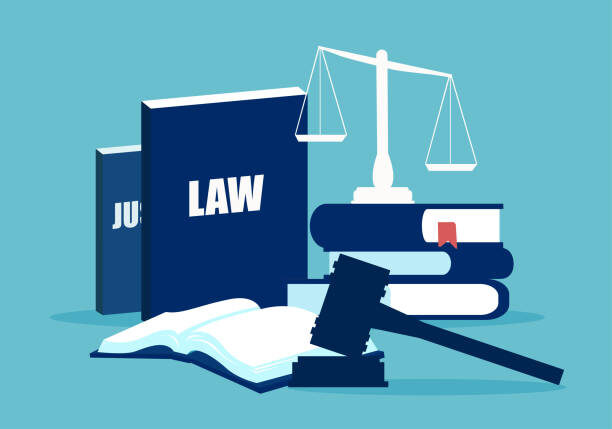

Adherence to good lawmaking principles is linked to the rule of law. To ensure the production of good legislation, provisions of the Constitution and the Rules of Procedure of the Parliament regulate individual issues related to the legislative process and set certain rules that must be followed when drafting and submitting a bill or an amendment for voting (see, inter alia, Articles 74, 75 of the Constitution, Articles 85, 87, 88 and 101 and in general Articles 84-123 and 160 of the Rules of Procedure of the Parliament). Furthermore, law 4622/2019 regulates, through Articles 57 to 64, issues of legislative procedure and good legislation.
Based on these general rules and Article 59 paragraph 5 of law 4622/2019, the Manual of Legislative Drafting Methodology, issued in 2020, analyses and specifies the rules that must be observed in the framework of the legislative drafting process. This handbook provides, inter alia, instructions and directions regarding: the public consultation process (see, inter alia, p. 12-13, 67-68); amendments (see, inter alia, p. 4, 18, 63, 70-71, 77-78); the issue of repealed provisions (p. 16 and 35), and even the title of a bill (p. 18-19, 47).
Despite the requirements of Article 61 of Law No. 4622/2019, the report on the public consultation has not been posted on the opengov.gr website; and no reference was found to any reason why the public consultation lasted less than two weeks was found in the regulatory impact analysis accompanying the draft law when it was submitted to Parliament.
On 11 October 2023, the bill was submitted to the Parliament for adoption, now having 31 Articles and with the phrase, ‘and other provisions on transport’ having been added to the title. Articles 28, 29, 30 were not present in the corresponding draft law submitted to public consultation and therefore do not appear to have been subject to the public consultation process. The inclusion of these articles in a separate part of the law (Part C – Other provisions on transport) also indicates that they are not directly related to the other provisions of the draft law.
On 18 October 2023 at 22:15, amendment 25/1/18-10-2023 was tabled by the Ministry of Infrastructure and Transport. This amendment contained 2 articles, which regulated issues related to the installation of electric vehicle charging devices in depots and the extension of the temporary assignment of a public transport project to the Thessaloniki Urban Transport Organisation.
Later that day at 23:20 the amendment 26/2/18-10-2023 was tabled by the Ministry of National Economy and Finance and the Ministry of Education, Religious Affairs and Sports. This amendment contained 4 articles, which regulated issues related to the increase of the duration of the Concession Contract between the Greek State and the Joint Stock Company of the Kavala Port Authority, the maintenance of Navy submarines, the granting of financial aid from the state budget to cover part of the increased costs of households in areas affected by natural disasters, as well as addressing staffing issues in primary and secondary education for the school year 2023-2024.
Both of these amendments were tabled just the day before the law was passed and therefore after the deadline for submitting amendments had already expired and contained provisions which were not related in any way to the objects of the bill introduced for voting, in violation of good law making considerations.
On October 18, 2023, the Standing Committee on Production and Trade prepared a report recommending the acceptance, by majority vote, of the bill.
On 19 October 2023, the bill was discussed in the Plenary Session of the Parliament and Law 5058/2023 was passed, now entitled “Transposition of Directive 2006/1/EC of the European Parliament and of the Council of 18 January 2006 on the use of hired vehicles without a driver for the carriage of goods by road, as amended by Directive (EU) 2022/738 of the European Parliament and of the Council of 6 April 2022, and Directive (EU) 2021/1187 of the European Parliament and of the Council of 7 July 2021 on rationalisation measures to facilitate the implementation of the trans-European transport network, and other urgent provisions” and consisting of 37 articles.
In a state governed by the rule of law, the Government and the Parliament must, in the process of preparing and passing legislation, follow the principles of good lawmaking and apply the rules established to promote and ensure it. This is because good lawmaking is linked to the constitutional principles of transparency and legal certainty, and the application of its rules and principles seek to avoid the phenomena of maladministration and omnibus legislation, which are inconsistent with the principles of the rule of law.
In Greece, however, the violation of these rules of good lawmaking appears to be a long-standing and systematic problem, as highlighted by the legislative journey of Law 5058/2023.
Bank Account number: 1100 0232 0016 560
IBAN: GR56 0140 1100 1100 0232 0016 560
BIC: CRBAGRAA
![]()
In a time where the very foundations of democracy are gradually being eroded by the rise of extreme nationalism, alt-right movements, the spread of disinformation and corporate capture, the efforts of organisations such as Vouliwatch are more relevant than ever.
We rely on the generosity of each and every one of you to continue with our efforts for more transparency and accounta
By financially supporting Vouliwatch you support our litigation strategy, our campaigns for transparency and accountability in the political system, the development of new civic tech tools, our research projects and last but not least our impartial and accurate